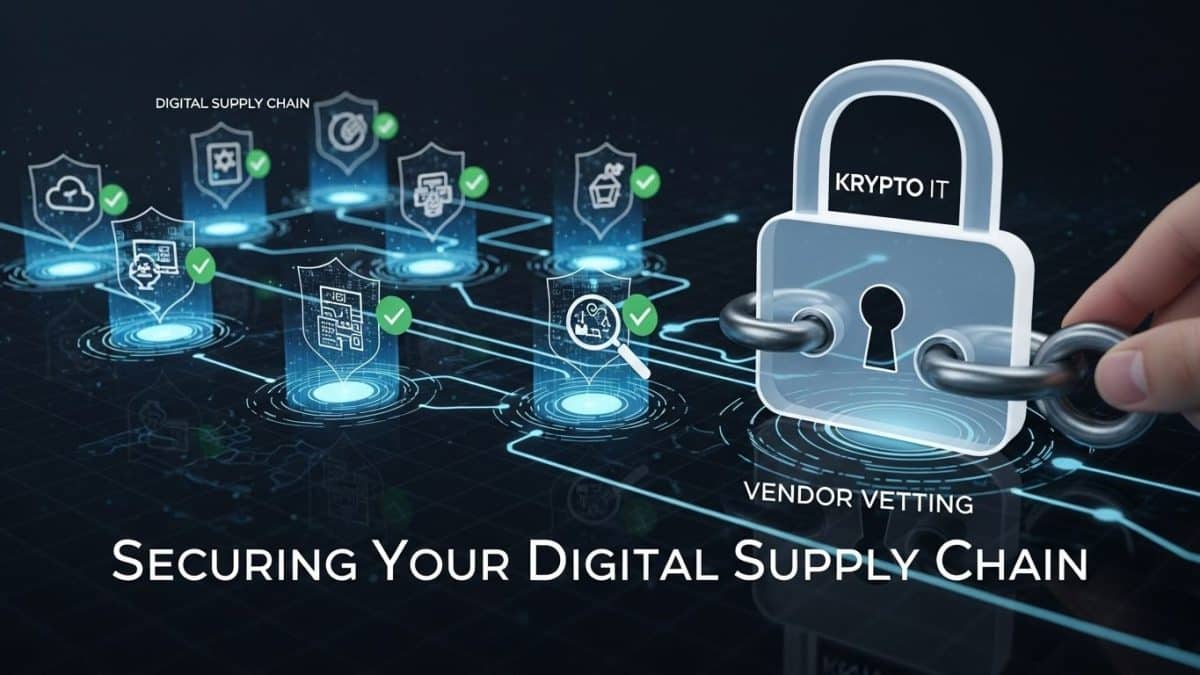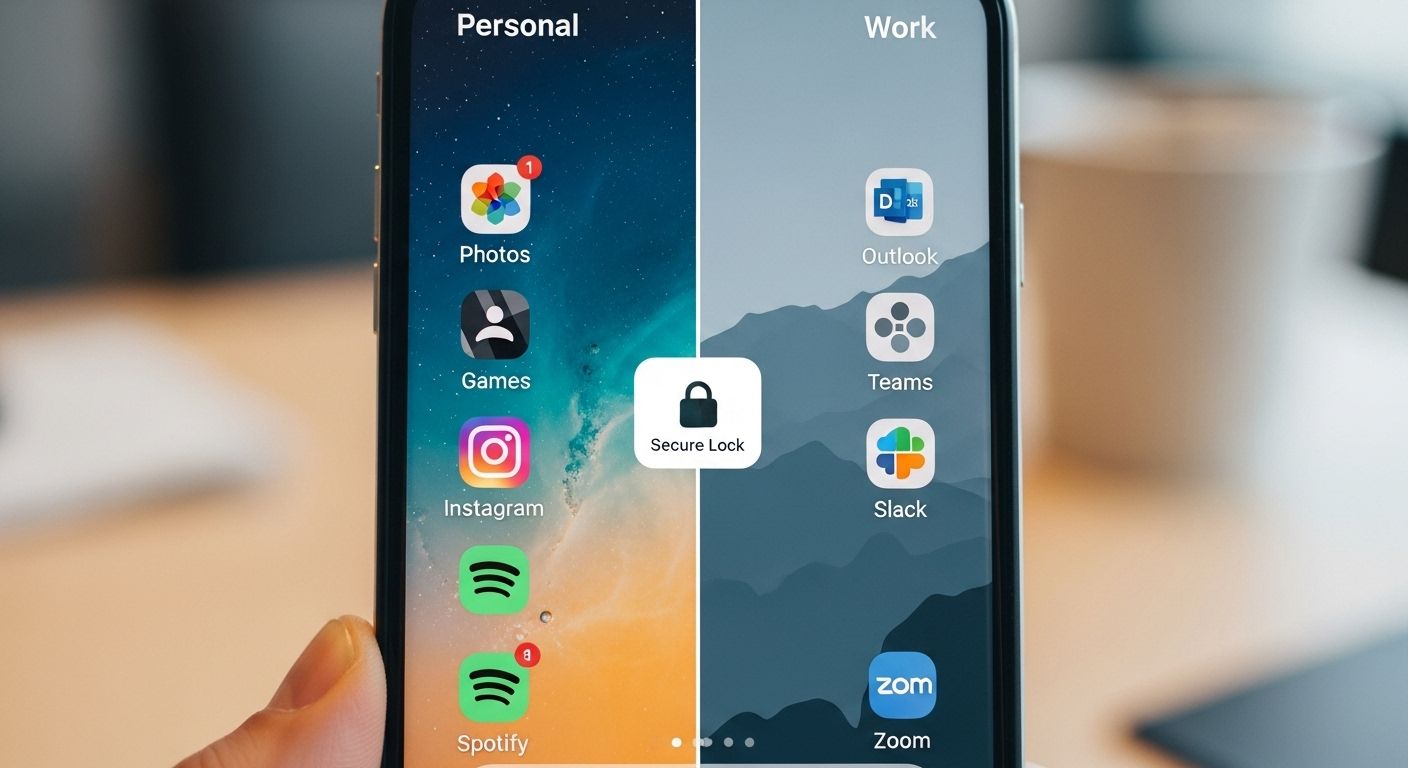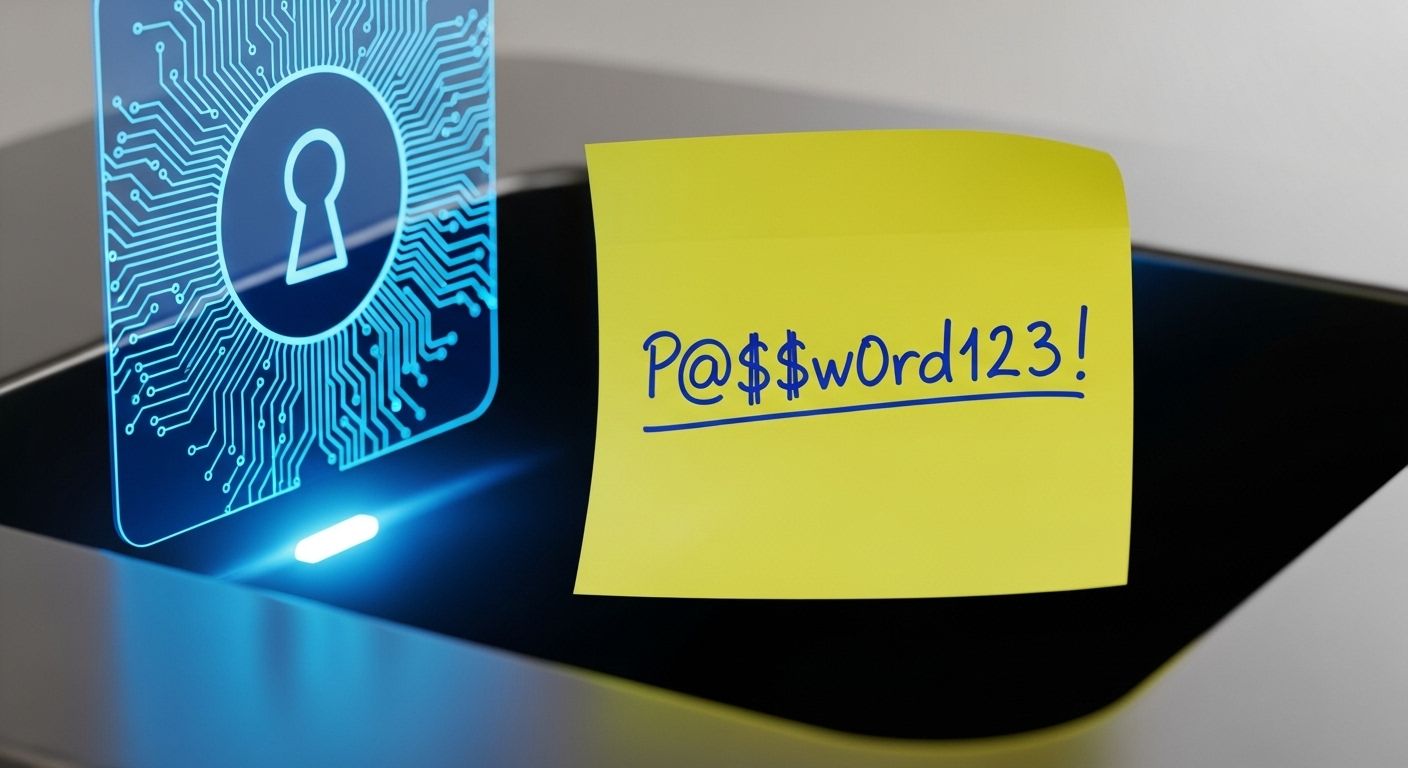
Beyond Passwords: The Power of Identity and Access Management (IAM)
October 27, 2025
Securing the Smart Office: The Unseen Network of IoT
October 28, 2025As a small to medium-sized business (SMB) in Houston, your success relies on digital tools—from cloud-based CRM systems to payment processors and inventory software. While these tools make your operations seamless, every single one of them creates a new link in your digital supply chain. If one link breaks, your entire business can be compromised.
The unfortunate reality is that many of the largest, most damaging cyberattacks today don’t target the main company directly; they target a less secure third-party vendor. This is known as a supply chain attack, and for the time-strapped SMB owner, the security of a vendor often falls into a dangerously blind trust.
It’s time to stop taking vendor security at face value. Here is your guide from Krypto IT on how to vet your partners and secure your digital supply chain.
Why Your Vendors Are Your Biggest Blind Spot
When you onboard a new vendor, you are essentially giving them a key to a part of your kingdom. That key might unlock financial data, customer PII, or access to your core network.
For SMBs, the primary danger lies in two areas:
- Shared Access: If a vendor’s platform gets breached, the criminals gain access to everything that vendor connects to—including your business data.
- Negligence: A vendor may have excellent software, but their internal security practices (like weak passwords or lack of Multi-Factor Authentication) can leave an open back door to your business.
Remember, a security chain is only as strong as its weakest link. For Krypto IT’s SMB clients, that weak link is often the least-scrutinized third-party service.
The 4 Essential Steps to Vetting Every Digital Vendor
Vetting a vendor doesn’t require a dedicated compliance team. It requires asking the right questions and demanding proof. Here are the four steps every SMB should follow before signing a contract.
1. Demand Proof of Foundational Security Measures
Do not accept vague assurances like “We take security seriously.” Demand specifics on the foundational defenses they have in place.
- Ask about MFA: Does the vendor enforce Multi-Factor Authentication (MFA) for all their employees who access your data? If they don’t use MFA, they are a massive liability.
- Data Encryption: Is all your data (data in transit and data at rest) encrypted? They should be able to confirm they use industry-standard encryption protocols (like AES-256).
- Access Control: How do they ensure that only necessary employees have access to your sensitive data? They should follow the Principle of Least Privilege (PoLP).
2. Review Their Compliance and Audit Records
While large enterprises rely on lengthy compliance documents, SMBs can focus on certifications that prove a vendor has been independently checked.
- SOC 2 Report: This is the gold standard for vendor trust. A SOC 2 report proves that a vendor has passed an audit verifying their controls related to security, availability, processing integrity, confidentiality, and privacy. Ask to see a copy of their latest report.
- Industry-Specific Compliance: If you are in healthcare, they must comply with HIPAA. If you process credit cards, they must comply with PCI DSS. Make sure they can clearly articulate how they meet those mandates.
3. Understand Their Incident Response Plan
A breach is a matter of when, not if. You need to know what happens the moment a vendor detects an issue on their side, as it directly impacts your business continuity.
- Notification Policy: What is their guaranteed time to notify you of a breach? This is often legally mandated, but you need to know their internal service level agreement (SLA).
- Restoration Strategy: If their systems go down due to a cyberattack, what is their documented Business Continuity plan? How quickly can they restore service, and what guarantees do they offer?
4. Require Contractual Protections and Liability Clarity
Always ensure your service contract explicitly addresses security and liability, rather than relying solely on the vendor’s general terms of service.
- Right to Audit: Can you or Krypto IT perform a basic security assessment or review their security policies?
- Liability Cap: If they are breached due to their own negligence, what liability do they accept regarding the costs your business incurs (downtime, notification costs, etc.)? Your attorney should review this carefully.
Krypto IT: Your Partner in Vendor Vetting
Vetting a complex vendor can feel overwhelming, but it’s a necessary form of proactive defense. Outsourcing this security due diligence is one of the most effective ways an SMB can manage risk.
Krypto IT doesn’t just manage your systems; we help manage your risk. Our vendor management services integrate seamlessly with your security stack, providing the expert knowledge to ask the tough questions and interpret the complex compliance reports.
Don’t let a partner become a liability. If you’re unsure about the security of any vendor in your digital supply chain, contact Krypto IT in Houston today for a vendor risk assessment.
Protect Your Digital Supply Chain. Contact Krypto IT Today.




